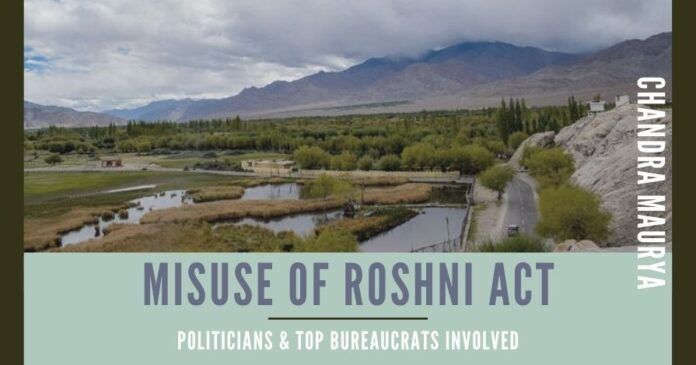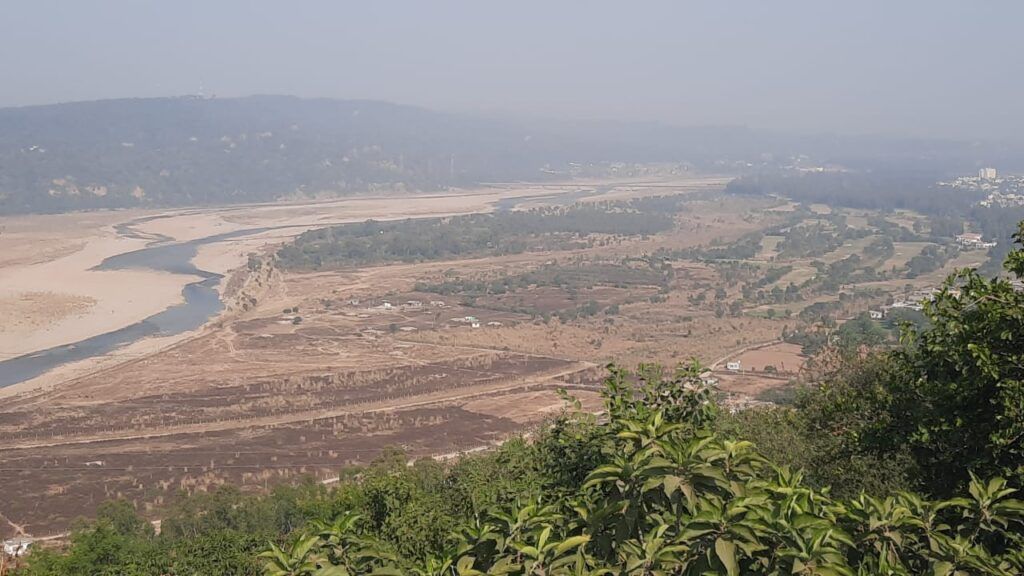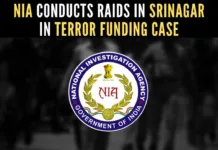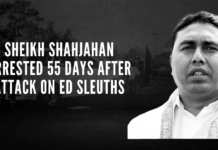
Divisional Commissioner Jammu and Divisional Commissioner Kashmir has published the first list of beneficiaries of the Roshni Scheme
In Srinagar, the administration has identified a former finance minister, a Congress leader, and a prominent hotelier among the Roshni beneficiaries.
Former Finance Minister Haseeb Drabu and his three relatives Shahzada Banoo, Ajaz Drabu, Iftikhar Drabu, a prominent businessman and Congress leader K K Amla, Rachna Amla, Veena Amla, Mushtaq Ahmad, former bureaucrat Muhammad Shafi Pandit and his wife Nighat Pandit, Syed Muzaffar Aga are among the beneficiaries of Roshni Act.
In Jammu, the list of encroached land other than Roshni which is physically encroached but not shown in revenue records includes Syed Akhoon, political leader National Conference (NC), M Y Khan, Abdul Majid Wani, ex-Minister Congress, Aslam Goni, political leader, Haroon Choudhary, political leader NC, Sajjad Kichloo, ex-Minister of NC. The list includes the names of several government employees and businessmen.
The orders in this regard were also issued by the Revenue Department and the concerned Tehsildars were directed to start the groundwork in order to retrieve the government land.
Complete Story
The first list of beneficiaries of the ‘Roshni Scheme’ which included several top politicians cutting across party lines, bureaucrats, police officials, have been made public by the office of Divisional Commissioner, Jammu and Divisional Commissioner Kashmir in pursuance of the directions of the Jammu and Kashmir High Court in the PIL NO 19 Of 2011 Titled S.K.Bhalla Vs State And Others Sand Other Connected Matters Dated Oct 9, 2020.
Earlier, the J&K government had decided to declare all the actions taken under the Jammu and Kashmir State Land (Vesting of Ownership to the Occupants) Act, 2001, also known as the Roshni Act, under which 20 lakh kanals of land was to be transferred to existing occupants, as “null and void”, and has also initiated steps to retrieve the land within six months.
On October 9 the division bench comprising Chief Justice of the Jammu and Kashmir High Court Gita Mittal and Justice Rajesh Bindal had also ordered the CBI probe into irregularities in the scheme.
Acting on the directions of the Jammu and Kashmir High Court, the J&k government has already directed the Principal Secretary Revenue Department to ensure that all the mutations done in furtherance of the act are annulled, encroachers are evicted and large tracts of land are retrieved within a period of six months.
The orders in this regard were also issued by the Revenue Department and the concerned Tehsildars were directed to start the groundwork in order to retrieve the government land.

Initially, the 25,000 crore Roshni land scam was unearthed by the Comptroller and Auditor General of India (CAG) in its annual audit report of 2013-14 but the successive state government failed to take any action against the violators who ‘willfully’ looted the state exchequer in connivance with powers be at the helm of affairs.
During the audit, the team of officers faced difficulties in getting full information/records despite writing a series of letters to the Revenue department in this regard during the period of audit.
To attract media attention and expose the open loot the Principal Accountant General (Audit) Subash Chandra Pandey had even organized a press conference where he described the transfer of 3,48,160 kanals of land in the state at a cost of Rs 76.24 crores (24 percent) against a demand of Rs 317.54 crores under Roshni Act, as one of the biggest scams of J&K.
Originally, the Act was aimed at resource mobilization of Rs 25,448 crores for investment in the power sector.
How the Roshni land scam surfaced?
While auditing the Roshni scheme in the year 2013-14, the officials stumbled upon this biggest land scam as they noticed gross irregularities were committed by the top bureaucrats in order to facilitate the land deals involving VVIP’s in Jammu and Kashmir.
During the audit, the team of officers faced difficulties in getting full information/records despite writing a series of letters to the Revenue department in this regard during the period of audit. With this constraint, an audit was conducted through a test check of records of the offices of the Deputy Commissioner in seven out of 20 districts in which the act was implemented. The records were test-checked in Srinagar, Jammu, Udhampur, Anantnag, Pulwama, and Budgam districts and 547 cases involving the transfer of 666 kanals of non-agricultural land were examined in detail.
It was after Pandey’s frequent exchange of communications and scores of visits to the offices of the two Divisional Commissioners, the then Revenue Commissioner, and the then Chief Secretary, that the government provided records of just 500-odd cases.
“We wanted to explore how the executive had made the rules and changes thereto without the same being ratified by the Legislature, leading to a revenue loss of Rs. 25,000 crore. We wanted to know under what legal authority the officers had changed the land use and the category, gifted away the agriculture category lands to the encroachers for free, and granted huge rebates to the commercial category. We were keen to see who waived the stamp duty and under what legal authority. But almost the entire information was concealed, and we were told that the CAG could not interfere with the matters of the Cabinet,” Pandey had said.
“Consequently, we examined just 447 cases of non-agricultural land, covering 666 kanals in only six districts, and detected a loss of Rs. 225 crore. Officials were found to have fixed the lowest rates and given huge rebates to the occupants. That is just the tip of the iceberg”, Pandey had asserted. He confirmed reports that out of the target of Rs 25,448 crore, only Rs.76 crore had been collected from the Roshni land transfers in over a decade.
The CAG report tabled in the state legislature carried exclusive details of the irregularities done from interpretation to implementation, particularly in favour of the occupants enjoying very strong political or bureaucratic clout.
Political parties- including Congress and the National Conference exploited the scheme to their advantage by regularising their unauthorized occupation of the prime lands on which they had raised the party offices besides the printing presses and the offices of their official organs-Daily Khidmat and Nawa-e-Subah.
Beneficiaries of the Roshni land scam
The Congress got proprietary rights over a prime piece of 7 kanals and 15 marals close to the Residency Road in the Kothibagh area of Srinagar. It is currently valued to be a property of Rs 80 crore. Its price was fixed at Rs 8.54 crore (Rs 1.10 crore/kanal). Congress enjoyed a rebate of Rs 7.58 crore and paid a total of Rs 96 lakh to the government.
The Congress-controlled Khidmat Trust operates the head office of daily Khidmat with several modern printing presses on the same premises.
A multi-floor commercial complex worth over Rs 50 crore has also come upon the same land.
The NC too has its party headquarters in a multi-floor commercial complex on a piece of the state land, measuring 3 kanals and 16 marlas. Offices and printing presses of the NC’s Urdu and English dailies, Nawa-e-Subah, also operate from the same premises near Zero Bridge in the heart of Civil Lines in Srinagar.
The land alone is currently valued at Rs 35 crore. Its price was fixed at Rs 4.56 crore (Rs 1.20 crore/kanal). The party enjoyed a rebate of Rs 4.05 crore and paid a total of Rs 51 lakh.
The then National Conference government headed by Dr. Farooq Abdullah had claimed that the scheme would generate revenue of over Rs 25,000 crore which would be utilized to raise new power projects.
Leading hotelier Mushtaq Ahmad Chaya has got ownership rights on a prime piece of the state land, measuring 5 kanals and 8 marlas, on Maulana Azad Road. He has paid Rs 97.20 lakh and enjoyed a rebate of Rs 3.35 crore. He has also regularised his possession of 4 kanals and 16 kanals in Gogji Bagh. For this, Chaya has paid Rs 66.52 lakh and taken a rebate of Rs 1.27 crore. Together the two properties are currently valued at Rs 80 crore.
CBI probe ordered?
In its petition, the complainant had sought fast-tracking of the probe by the Anti-Corruption Bureau (ACB). But instead of devoting more time and manpower to investigate the pending complaints of glaring irregularities, the ACB could manage to produce charge sheet in only two cases out of 17 FIR’s registered in different cases.
Sheikh Shakeel Ahmad, one of the counsels who pursued this matter since beginning said, “CBI probe in the matter will put the investigation agencies under pressure and those found guilty for making fraudulent allotments or sleeping over the investigations could be made accountable now[1].”
He said, “We had prayed for the CBI investigation as the names of many powerful politicians, bureaucrats, and government officers had surfaced during the investigation but there was no questioning of them. We are optimistic that the CBI would hold a time-bound, professional investigation”, advocate Ahmad asserted.
According to S S Ahmad, some former Chief Ministers, some influential politicians including Ministers, besides a number of the Police officers and over 20 serving and retired IAS officers, could be grilled for their alleged involvement or carelessness in transferring proprietary rights to the land grabbers.
The DB has directed the ACB to hand over all the pending ‘Roshni’ cases to the CBI. The CBI would have to constitute a Special Investigation Team (SIT) and start the investigation forthwith. The DB would monitor the investigation and review its progress periodically. The CBI has been directed to submit its first action taken report in the next 8 weeks.
History of the Roshni Act
The Jammu and Kashmir State Lands (Vesting of Ownership to the Occupants) Act, 2001 (known as the Roshni Act) had been enacted by the J&K Legislature in 2001. Apparently, its objective was vesting of ownership rights to the illegal occupants against a price. The then National Conference government headed by Dr. Farooq Abdullah had claimed that the scheme would generate revenue of over Rs 25,000 crore which would be utilized to raise new power projects.
However, most of the transfers of the proprietary rights of the occupied lands, with drastic changes in the rules from time to time, took place in 2005-08, when Ghulam Nabi Azad was the Chief Minister and the head of the Congress-PDP coalition.
The so-called Roshni Act had been made for a limited period of operation but extended by successive governments from time to time. It was finally scrapped by the then Governor Satya Pal Malik prospectively on 28 November 2018, 5 months after the breakdown of the PDP-BJP government.
Note: The names of former ministers are listed in the PDF named SGR-NOV232020
1.
Proforma A – Roshni Scheme by PGurus on Scribd
2.
Format A-Jammu West-23112020 by PGurus on Scribd
3.
Format A-Khour-23112020 by PGurus on Scribd
4.
Format C-Maira Mandrian -23112020 by PGurus on Scribd
5.
Format D-23112020 by PGurus on Scribd
6.
SGR-23nov2020 by PGurus on Scribd
Note:
1. The views expressed here are those of the author and do not necessarily represent or reflect the views of PGurus.
References:
[1] Report No. 1 of 2014 – Performance Audit on Revenue and Public Sector Undertakings of Government of Jammu Kashmir – Comptroller and Auditor General of India
- Assembly polls in Jammu and Kashmir soon: Modi - April 12, 2024
- Campaign trail: Udhampur-Doda Lok Sabha seat - April 8, 2024
- Ghulam Nabi Azad returns to the poll arena, to contest the Anantnag-Rajouri Lok Sabha seat - April 2, 2024










